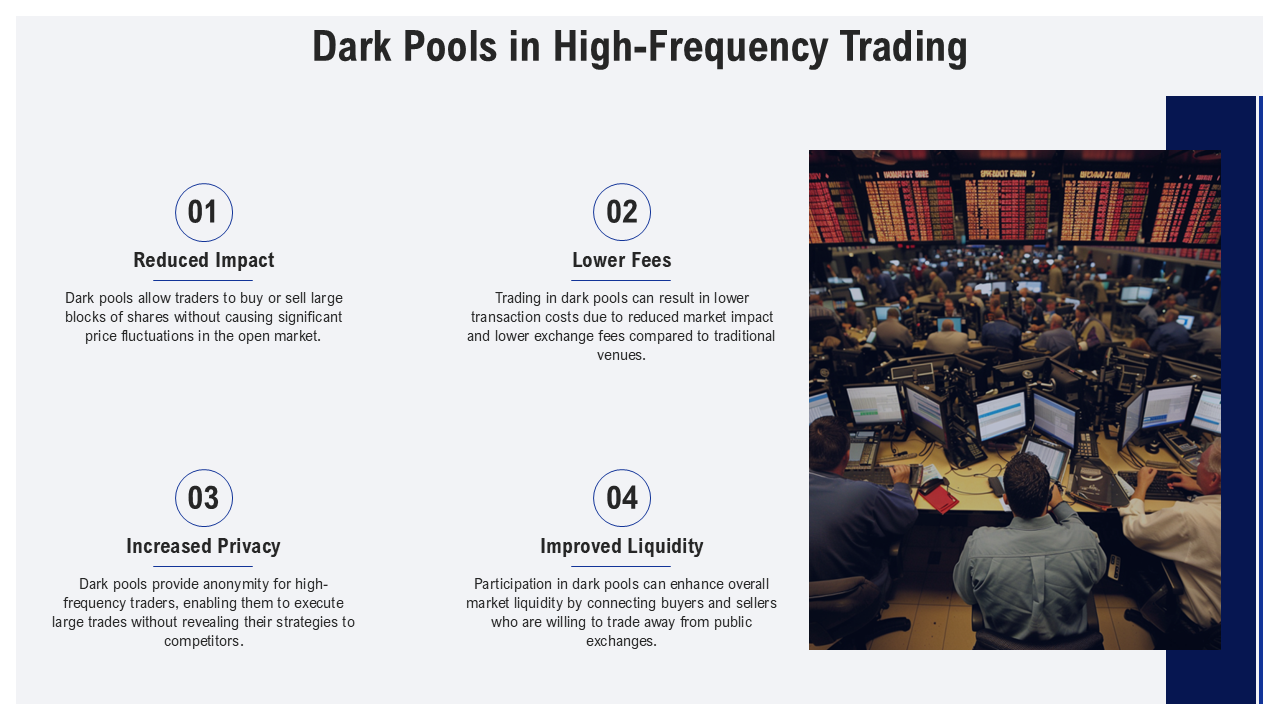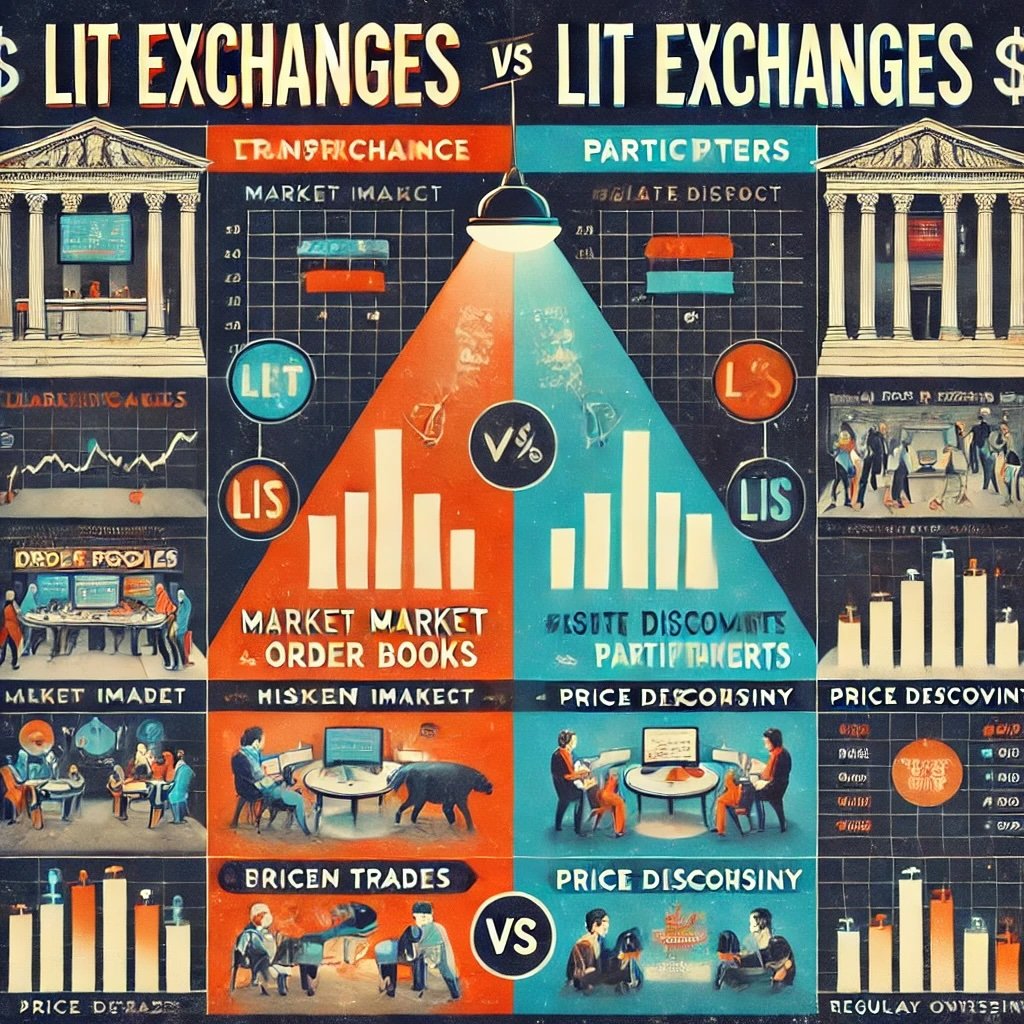Did you know that dark pools are not just for shady characters but are also a crucial part of modern trading? In this article, we explore the significant impact of dark pools on stock volatility. Discover how they can cause price swings and affect market liquidity. We’ll delve into their relationship with sudden price movements and potential market manipulation. Learn about flash crashes, the risks of trading in dark pools, and regulatory perspectives. Additionally, we’ll discuss strategies to mitigate risks associated with dark pool activity and how it influences overall market stability. Join us at DayTradingBusiness as we uncover the complexities of dark pools and their effects on trading dynamics.
Can Dark Pools Cause Stock Price Swings?
Yes, dark pools can cause stock price swings. When large trades are executed in dark pools, they sometimes reveal information or create sudden shifts when orders are revealed or matched, leading to increased volatility in the stock's price on public exchanges.
How Do Dark Pools Affect Market Volatility?
Dark pools can increase stock volatility by hiding large trades that, when revealed suddenly, cause sharp price swings. They reduce transparency, making it harder for retail investors to gauge true supply and demand, which can lead to unpredictable price movements. When big institutional trades exit or enter dark pools, it can trigger abrupt shifts in stock prices, amplifying overall market volatility.
What Is the Relationship Between Dark Pools and Stock Fluctuations?
Dark pools can impact stock volatility by hiding large trades that, when revealed later, cause sudden price swings. When big transactions occur in dark pools, they don't immediately influence public prices, but once disclosed, they can trigger rapid fluctuations. This opacity can lead to unpredictable price movements, especially if traders react to hidden activity or unexpected disclosures. Overall, dark pools contribute to stock volatility by adding layers of secrecy and delayed market reactions.
Do Dark Pools Increase Sudden Price Movements?
Yes, dark pools can increase sudden price movements because they hide large trades, which can cause abrupt price swings when those trades are eventually revealed or when other traders react to perceived market changes.
Can Dark Pool Trading Lead to Market Manipulation?
Yes, dark pool trading can lead to increased stock volatility. Because dark pools hide large trades from public view, they can create sudden price swings when these trades are eventually revealed or executed. This lack of transparency might allow manipulative tactics, like quote stuffing or layering, to influence stock prices. As big institutional traders move large blocks quietly, unexpected price shifts can occur once the trades become visible, impacting overall market stability.
How Do Dark Pools Impact Liquidity and Volatility?

Dark pools can reduce stock volatility by hiding large trades, preventing sudden price swings. They improve liquidity by allowing big investors to buy or sell without impacting the public market. However, they can also increase volatility if they lead to fragmented trading or reduce transparency, causing unpredictable price movements.
Are Dark Pools Responsible for Flash Crashes?
Dark pools can contribute to stock volatility and flash crashes by hiding large trades that suddenly hit the market, causing sudden price swings. When big orders in dark pools are executed unexpectedly or if there's a lack of transparency, they can trigger rapid, unpredictable moves in stock prices. This opacity can lead to sudden liquidity gaps, amplifying the risk of flash crashes.
Do Dark Pools Make Stocks More Volatile?
Dark pools can increase stock volatility by hiding large trades, which can cause sudden price swings when the trades are eventually revealed. They reduce transparency, leading to less predictable price movements. When big orders are executed in dark pools, it can create a false sense of stability, then cause sharp volatility once the information leaks out. Overall, dark pools can contribute to more unpredictable and volatile stock prices.
How Do Dark Pools Influence Price Discovery?
Dark pools can impact stock volatility by hiding large trades that, when revealed, can cause sudden price swings. They reduce transparency, making it harder for the broader market to see supply and demand shifts, which can lead to less efficient price discovery. When big institutional orders are executed quietly, the public market may react unpredictably once those trades become visible, increasing short-term volatility.
Can Dark Pool Activity Skew Stock Prices?

Yes, dark pool activity can skew stock prices by hiding large trades that don't immediately impact public markets, leading to sudden price moves when the trades are revealed. It can increase stock volatility because these large, undisclosed transactions influence supply and demand dynamics without transparent visibility. Traders and algorithms reacting to perceived market changes may cause rapid price swings, especially if dark pool activity signals institutional buying or selling.
What Are the Risks of Trading Stocks in Dark Pools?
Trading stocks in dark pools can increase stock volatility because it hides large orders from public view, causing sudden price swings when these trades are revealed. Dark pools can lead to less transparency, making it harder for investors to gauge true supply and demand, which can result in erratic price movements. The lack of visibility may also enable manipulative practices like quote stuffing or front-running, further amplifying volatility. Overall, dark pools can distort market signals, making stock prices more unpredictable and risky for retail investors.
Do Dark Pools Contribute to Market Noise?
Yes, dark pools can contribute to market noise by hiding large trades that can cause sudden price swings once they appear on public exchanges. They reduce transparency, making it harder for traders to gauge true supply and demand, which can increase volatility. When big orders execute in dark pools and then hit the public market, they can trigger rapid price movements, adding to stock volatility.
How Do Regulators View Dark Pools and Volatility?

Regulators see dark pools as potential sources of increased stock volatility due to their hidden trading activity, which can cause sudden price swings when large orders are revealed or executed. They worry dark pools might reduce market transparency, leading to unpredictable volatility spikes. While dark pools help institutional traders minimize market impact, regulators monitor them closely to prevent manipulation and excessive price swings that can destabilize the broader stock market.
Can Investors Detect Dark Pool Impact on Stocks?
Yes, investors can detect dark pool impacts on stocks through unusual trading volume, sudden price swings, and discrepancies between dark pool data and public markets. While dark pools are private, increased activity in these venues often correlates with increased stock volatility. Monitoring order flow, size of block trades, and comparing dark pool reports with public quotes helps identify their influence. However, because dark pools shield trading details, pinpointing their exact impact remains challenging.
What Strategies Minimize Dark Pool Risks?
To minimize dark pool risks, use strict order size limits, diversify trading across multiple venues, and monitor dark pool activity for unusual trades. Incorporate real-time alerts for dark pool executions and set predefined thresholds for acceptable dark pool exposure. Regularly review and adjust trading algorithms to avoid overreliance on dark pools. Combining these strategies helps reduce exposure to hidden risks and potential volatility spikes caused by dark pool activity.
How Do Dark Pools Affect Overall Market Stability?
Dark pools can increase stock volatility by hiding large trades, which can lead to sudden price swings when those trades are eventually revealed. They reduce transparency, making it harder for other traders to see supply and demand shifts, potentially causing unpredictable price movements. While they can help large investors execute trades without impacting the market, their opacity can also undermine overall market stability by creating hidden risks and reducing price discovery accuracy.
Learn about How Do Dark Pools Impact Market Fairness?
Conclusion about Can Dark Pools Impact Stock Volatility?
In conclusion, dark pools play a significant role in stock market volatility, influencing price swings, liquidity, and overall market stability. Their secretive nature can lead to unpredictable price movements and potential manipulation, which may affect investors' trading strategies. Understanding the implications of dark pool trading is crucial for navigating the complexities of the market. For those looking to enhance their trading knowledge and strategies regarding dark pools, DayTradingBusiness offers valuable insights and resources.